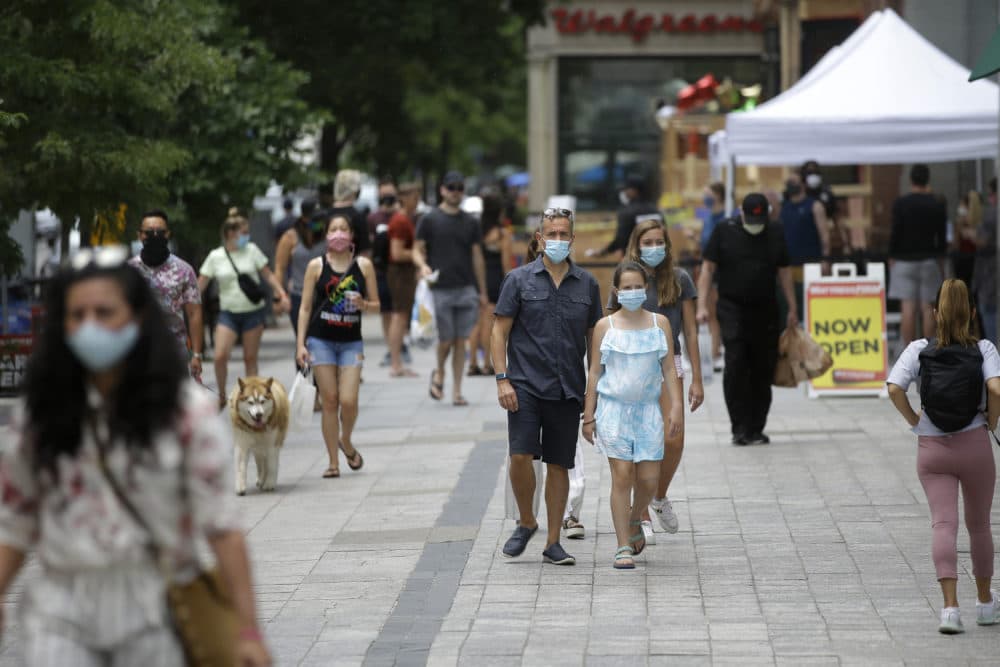Advertisement
How do we balance medical science and personal freedom when crafting public health policy?
Resume
This is the Radio Boston rundown for Feb. 7. Anthony Brooks is our host.
- With the number of COVID-19 infections falling across much of Massachusetts, is it time to end mask mandates and begin a transition to some kind of new normal? Public health policy should obviously follow the science, but is it time to consider other factors like economic impact, social cost, and personal freedom as well? And how do policymakers strike that balance between personal choice and public health? We discuss all of that and more with Dr. Michael Hirsh, Medical Director for the city of Worcester, and Lenny Marcus, founder and director of the Program for Health Care Negotiation and Conflict Resolution at the Harvard T.H. Chan School of Public Health.
- Democrats in New Hampshire are crying, "gerrymander!" over a new proposed congressional map, already passed by the Republican-controlled State House of Representatives. The bill now heads to the State Senate, and if passed, on to Governor Sununu's desk. First, WBUR's Anthony Brooks brings us the latest info on the proposal. Then, we check in with incumbent Democratic Representative Chris Pappas, who represents New Hampshire's First District.
- To Spotify or not to Spotify? That's the question artists are asking themselves these days, after Neil Young started a boycott of the streaming platform. Young levied an ultimatum over the platform's decision to continue hosting Joe Rogan's podcast, expressing concerns over misinformation around COVID and the vaccines being spread, but Spotify chose to stick with Rogan. As a result, Young, and a number of prominent musicians responded by pulling their music off the platform. But for younger, less successful artists, the decision becomes about more than just the moral high ground. We discuss how artists are thinking about their role in this latest controversy with George Howard, distinguished professor of music business management at Berklee College of Music, Dreion, a Boston-based singer songwriter and Berklee College of Music alumn, and Damon Krukowski, a longtime member of the Boston music scene, first with the band Galaxie 500, and now half of the musical duo Damon & Naomi.
This program aired on February 7, 2022.